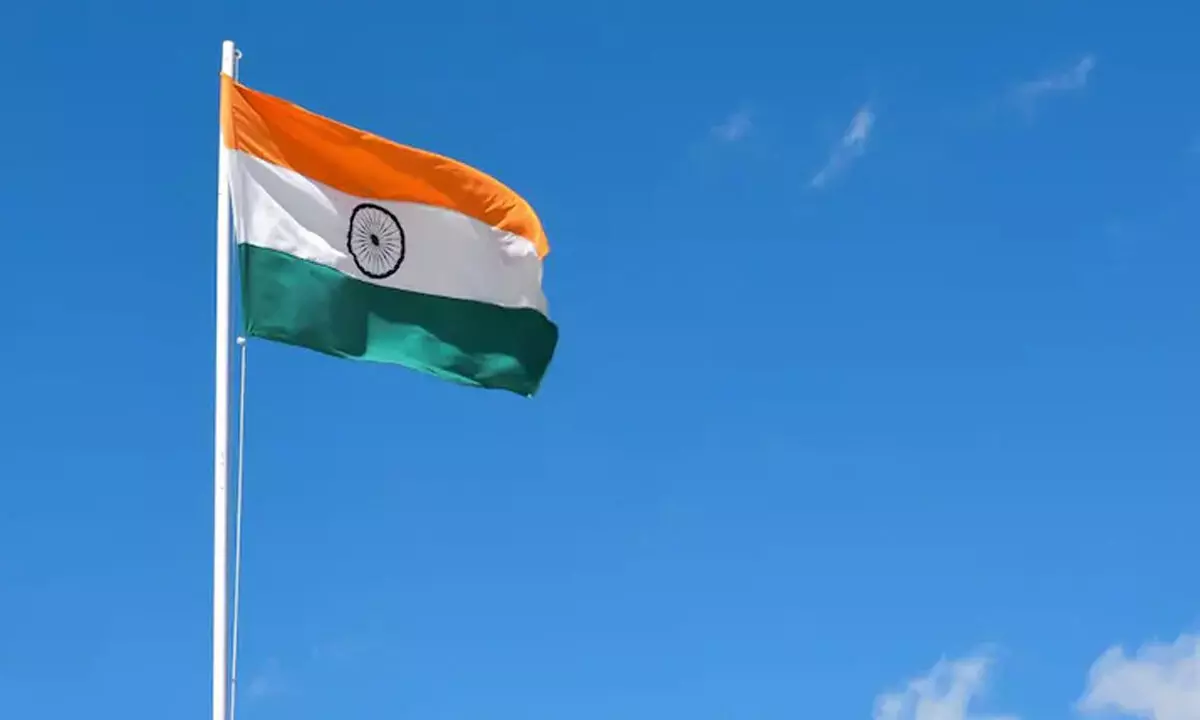Live
- Google to Unveil Antivirus System in Android 15 Beta Release
- VITEEE-2024 begins from today
- YS Jagan's Memanta Siddham Bus Yatra starts at Godicherla
- Kishan Reddy realises he could not win, hence report card: BRS
- Hyderabad: Major fire breaks out at scrap godown
- TDP releases video songs highlighting AP govt’s failures
- KCR to kickstart his bus yatra from April 22
- EC observers review measures taken in Chevella LS segment
- Guntur: Kilari, Nandigam, Tenneti file nominations
- Govt releases Rs 50 cr for clearing weavers’ dues
Just In
India must find ways to tame the dragon


India must find ways to tame the dragon
Expectedly, China has once again put a hold on Pakistani terrorists being branded as such at the United Nations
Expectedly, China has once again put a hold on Pakistani terrorists being branded as such at the United Nations. This is the bitter reality that needs to be digested and India has to plan accordingly. China shall never accept anything that goes seemingly in favour of India and it will go to any extent in safeguarding Pakistan's interests – rather its own interests – vis-a-vis India. Pakistan is a failed State and China is a failing State.
All those who criticise India's foreign policy should be aware of it. We have very few friends in the immediate neighbourhood. Pakistan, Nepal, Sri Lanka or even Maldives...these are all self-centric and would love to be in the fold of China due to the alms it throws at them to sustain its vice-like grip on the countries and to surround India with its spy network. There is a deep and strong interlink between the Pakistani Army, organised crime (especially D-Company) and Islamic terrorist groups operating out of Pakistan on behalf of the military's irregular war against its neighbours in India and Afghanistan, experts have been warning. Several international agencies and reputed study groups and intelligence agencies certify that Dawood Ibrahim still controls one of the most comprehensive organized crime networks in Mumbai with deep collusive roots among elements of Maharashtra's political leadership. Radical Islamic groups like the PFI and SDPI and their several offshoots are being cleverly used by the D-gang and the ISI to foment trouble in India. In fact, D-Company has become a major Inter-Services Intelligence (ISI) asset and a continuous collaborator with the Lashkar-e-Taiba (LeT) and other Pakistan-backed terrorist groups, facilitating the movement of arms and explosives, as well as of finances across international boundaries. India needs to be wary of this and so do other democracies.
In a bid to treat India and Pakistan on the same level, many Western statesmen in the past have been hoodwinked by Pakistani propaganda, to let Rawalpindi off the hook, allowing the ISI to expand its crime-terrorism domain. The kind of clandestine infrastructure for terrorism that the Pakistani deep state has assiduously built is simply not viable in the Indian context. India has its own challenges, but its institutions have simply no wherewithal, capacity or freedom to pursue a radical terrorist agenda. The so-called terrorism in Pakistan is nothing more than the 'blowback' or 'boomerang' effect of patronising and nurturing terrorism and its infrastructure on its own territory. The UN's World Drug Report 2020 maintained that, over the preceding five years, Afghanistan accounted for nearly 84 per cent of the world's total opium production, and the Taliban is believed to be generating nearly $1.5 billion in drug revenues annually. There is no way such a large volume of drug trade could be carried out without reliable world-wide networks that would require continuous efforts and state support to maintain. Further, such Pakistani or Pakistan-linked networks are not confined to the production and processing of drugs alone. A significant component of the proceeds of illicit drug and crime money would be finding its ways into the legal economy. India needs a comprehensive strategy to deal terrorists and their friends if it dreams of becoming a developed country any sooner.

© 2024 Hyderabad Media House Limited/The Hans India. All rights reserved. Powered by hocalwire.com






